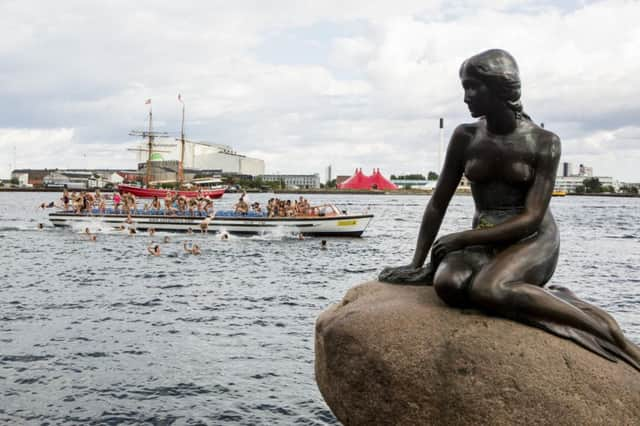Ib Hansen: Nordic alliance sets example to Scots voters


I guess the question is posed to me specifically because, to greater or lesser degrees, people here have a notion that Scotland and Denmark have many similarities. And that is true.
Advertisement
Hide AdAdvertisement
Hide AdThe principal difference, of course, is that Denmark is a fully independent state; Scotland is not, but it will be if there is a Yes vote in September’s referendum.
Scotland and Denmark are very similar in size, each with populations of around 5.5 million. Both Denmark and Scotland are ancient kingdoms and, of course, Scotland is currently part of a united kingdom.
Denmark is like Scotland in that each country has a North Sea oil and gas industry, we share a rich heritage in farming and fishing and we each have international reputations for know-how, ingenuity and expertise.
I believe we Danes also have something else in common with Scots – a strong desire for social cohesion, social justice and social solidarity. We are, at heart and fundamentally, caring societies.
In Denmark, the national outlook is that everyone has the right to improve their lives, but not at the expense of your fellow citizens.
My experience is that most Scots share a similar philosophy. But I don’t believe the Westminster system of government allows Scots to fully realise their ambitions, to adequately articulate their values or to fulfil their priorities.
Of course, unlike Scotland, Denmark is fully in control of her own future, but we should not forget that (the European Union apart) my homeland is also part of a ‘union’ of independent nations – Scandinavia. Denmark, along with Norway and Sweden, comprise this ‘union’. When we include Finland, Faroe Islands and Iceland we become what is sometimes referred to as the Nordic family.
Sweden, of course, is not a member of Nato. And Norway (and Danish Faroe Islands) is not in the EU. Only Finland uses the Euro as its currency, while the rest of the Nordic countries are using kroner, and this is a legacy from the Kalmar union there which is more than 700 years old. But despite these differences we are much more than neighbours. We are certainly friends and many of us are happy to regard us as family.
Advertisement
Hide AdAdvertisement
Hide AdNordic nations offer different possible examples of how an independent Scotland may want to choose to co-operate with the EU. Norway is not a member of the EU, but is a prominent part of the European Economic Area. Denmark can be rightly proud of the gains made in rejecting the first Maastricht treaty referendum in 1992. We then accepted further European integration on our own terms.
Every country in this Nordic alliance has an army, navy and airforce and I have no doubt that if any of our number was threatened militarily the others would stand squarely in defence and support.
But whether we are friends, family or just allies – sharing mutual respect in a spirit of genuine co-operation and collaboration – we are all fiercely independent and jealously guard our sovereignty.
The point is that we are independent, we are not separate. Of course the historical ties between Scotland and England have been forged over more than three centuries and for many pro-UK supporters the prospect of Scottish independence is emotionally painful.
The Union of Crowns brought together the monarchs of Scotland and England in 1603. This will remain after independence because next year’s referendum is about untangling the 1707 act of union to transfer all powers to the Scottish Parliament. The three states of Scandinavia demonstrate that a constitutional monarchy is a fine system of government capable of delivering social justice, fairness and all-round good governance.
But those who choose (most commonly politicians pursuing purely political ends) to frame the independence argument as a ‘separation’ – as if the two countries were to be physically fractured at the border – are looking through the wrong end of a metaphorical telescope.
There is nothing wrong with wanting to be independent, to make your own decisions and to shape your own future. After all, it’s what we crave as human beings. It’s no different for countries which are, after all, really just collections of people.
No one in the constitutional debate now doubts that Scotland could be a successful, independent country. The only question is: should it be?
Advertisement
Hide AdAdvertisement
Hide AdWell, from my experience as a Dane now living in Edinburgh, I can find no compelling reason to answer ‘No’.
Small independent countries are doing rather well for themselves. I have no doubt that an independent Scotland, with all its great wealth, natural and human resources, and its desire to build a fairer, more caring society would do the same. Why wouldn’t it?
And, who knows, just like those who make up the Nordic family, it may well be that Scotland and the rest of the UK will become even closer than they are now.
• Ib Hansen is a Dane who has been living in Scotland for 19 years. He is treasurer of the Danish Scottish Society and works in the offshore petrochemical industry for a Scottish electrical engineering company